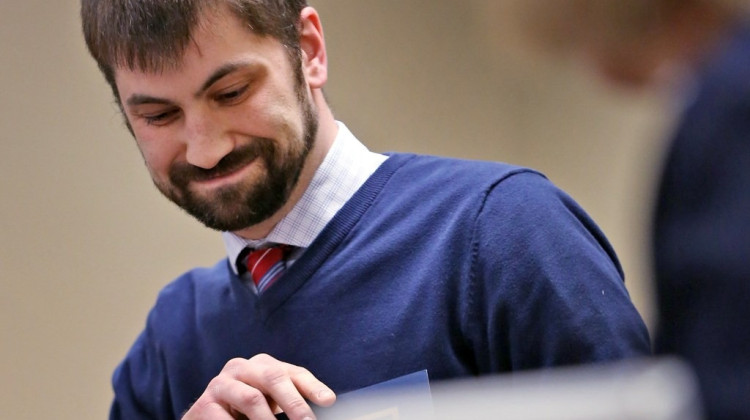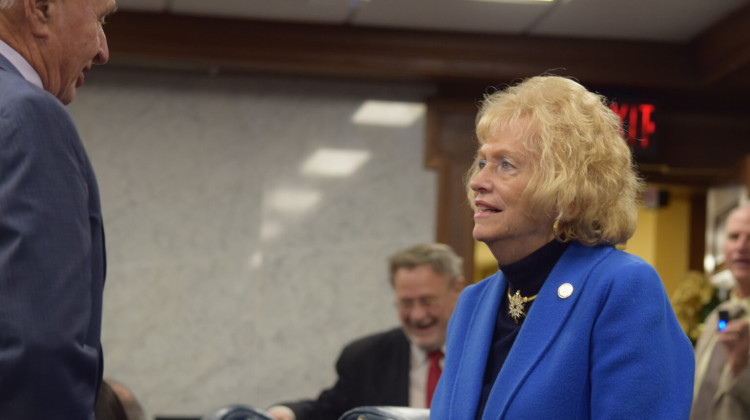Prior to 1900, there were very few Black lawyers practicing in and around Indianapolis. The first Black attorney admitted to the bar in Indianapolis was James T.V. Hill, who practiced law from 1882 to 1928 and was active in civic affairs.
The Marion County Lawyers Club was created in 1925 for the growing Black lawyer population in Indianapolis to have a safe space. In 1942, the name changed to the Marion County Bar Association (MCBA).
“We will celebrate 100 years next year. That’s a huge accomplishment, and we still play an important role in this community. Historically, we are a minority bar association, but we do have non-minority members,” said Marion County Superior Court Judge and Marion County Bar Association President Charnette D. Garner.
The association was established as a direct result of exclusionary policies practiced by white contemporary associations.
Although injustices toward minorities in the early 1900s were at a high, in 1909 Indiana witnessed the birth of the National Association for the Advancement of Colored People (NAACP) and the National Urban League.
“You must go back even further in history. Indiana was a free state, but the Indiana Constitution did deny Black men the right to vote in 1816. Black men and women could not testify in court proceedings, and then in 1851, the Indiana Constitution prohibited Black people from even moving into the state of Indiana,” said Hon. Tanya Walton Pratt, who serves as the chief judge of the United States District Court for the Southern District of Indiana.
Between 1915 and 1939, several Black lawyers began practicing in Indianapolis.
Until 1952, the American Bar Association (ABA), considered the preeminent bar association, would not accept African American lawyers into its membership.
In response to this, a group of distinguished African American lawyers created the National Bar Association (NBA) in 1925. The NBA founded state and local organizations and held seminars, symposiums and discussions about common problems in law.
“This is our 25th year doing Black History Month programs, but it’s important because we do have a pretty controversial history here in Indiana for Black achievements and opportunities for Black lawyers and judges,” said Pratt.
“One challenge that we have here now is maintaining a diverse court. I became the first Black federal judge in the entire state of Indiana in 2010. Right now, in the Southern District of Indiana I’m still the only Black criminal judge. A majority of our criminal prosecutions are Black people, so it’s important that they are not the only person of color in the courtroom.”
The Marion County Bar Association has been an affiliate of the National Bar Association for several decades.
The association offers members Continuing Legal Education (CLE) and hosts a CLE week annually in December. It has also hosted and helped host Black History Month programs on Indiana’s law history and completed community projects related to voter registration, evictions and expungement.
“When I was appointed in January as president, my remarks focused on the past, the present and the progress. Black lawyers were dealing with different issues compared to now in terms of segregation and discrimination,” said Garner.
“I won’t act like we have that now, but they were really fighting for rights that we have now.”
At least one member of the association sits on the Marion County Judicial Selection Committee seat as part of equal representation, and that role is currently filled by attorney Katie Jackson-Linsay.
Garner, who was a career prosecutor before she became a judge, said there is still a lot of work needed to make Black lawyers and judges in Indiana the norm.
She recently went to go speak with a group of Black women about her career and noted that people are still shocked that she is a judge in the legal field.
People assume she is either a paralegal, on staff or that she is anything but a lawyer.
“Even being a judge now, they’re asking questions like, ‘Are you really?’ It’s not every day that you meet a Black judge. I wish it could be the norm to where no even thinks about that,” said Garner.
“I really went to law school to help people. I know that sounds like the typical answer, but I went to law school to give people that voice. I’ve always wanted to be a judge.”
The next Marion County Bar Association event is March 8 from 2-4 p.m. at the federal courthouse and will discuss the Crown Act and the hair discrimination that still happens in the workplace.
 DONATE
DONATE







 Support WFYI. We can't do it without you.
Support WFYI. We can't do it without you.